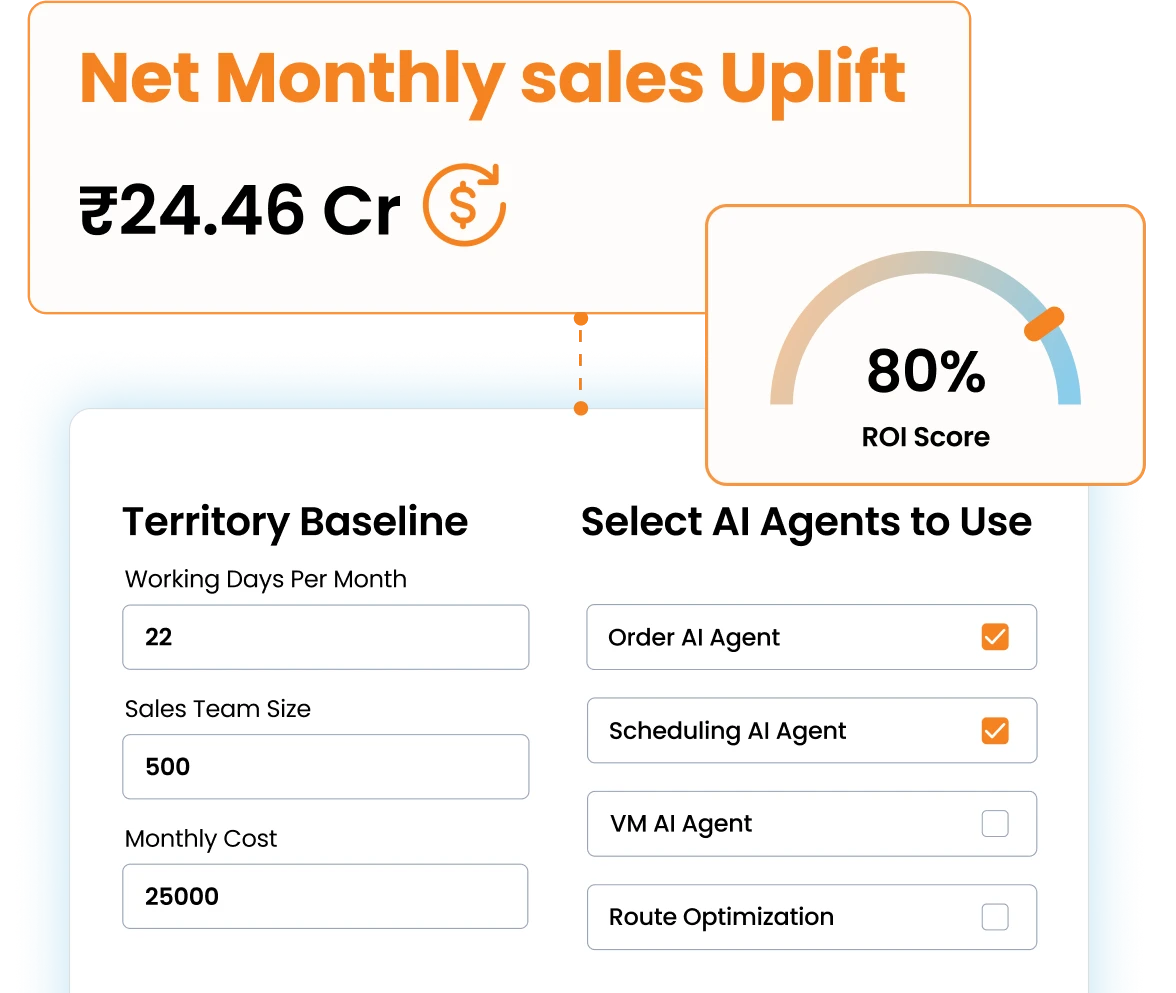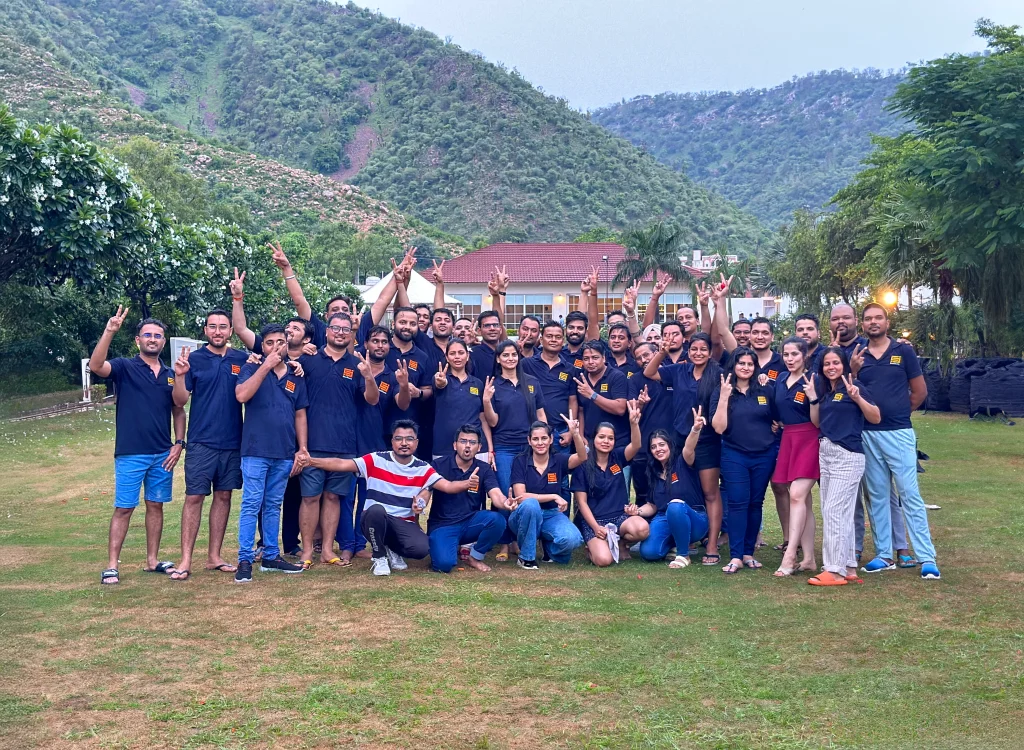BeatRoute X Sandeep Ray: Demystifying Sales Transformation and Strategies

In retail distribution, the ability to adapt and innovate is crucial for success. This article discusses the insights offered by seasoned industry expert, Mr. Sandeep Ray, who brings a wealth of experience and knowledge in sales transformation for Fast-Moving Consumer Goods (FMCG) companies.
Not simply a sales consultant; Sandeep is a catalyst for change, a trainer, a content creator on YouTube, and the author of the highly acclaimed book “FMCG Sales Toolkit.” With a career spanning well over a decade, Sandeep has navigated the intricate corridors of retail distribution, honing his expertise in optimising sales strategies in the FMCG industry.
About Sandeep
Sandeep’s journey from a sales professional to an expert in sales training, advising, content creation, and authorship showcases a remarkable career shift. Motivated by his curiosity for understanding new processes, Sandeep seamlessly transitioned into training roles, drawn by his passion for public speaking and engagement.
Recognizing the need to bridge theory and practice, Sandeep ventured into consulting to ensure the implementation of training methodologies within diverse businesses. This shift was driven by his desire to address the common challenge of limited access to resources and expertise faced by smaller organisations.
His YouTube channel, Skill to Will, was a pivotal step that sought to democratise access to his valuable insights and expertise, especially amidst the Covid-19 pandemic. This initiative not only served his existing clientele but also attracted a global audience, highlighting the universal demand for accessible knowledge in sales and business development. Guided by a steadfast commitment towards a tangible impact, Sandeep’s career underscores the importance of industry needs with determination and purpose.
In response to widespread demand stemming from his YouTube channel and audience, Sandeep revealed plans for a digital rendition of his acclaimed book, “FMCG Sales Toolkit.” Aimed at providing a comprehensive resource for professionals, startups, MBA students, and industry enthusiasts, this digital adaptation promises greater accessibility and convenience. This digital version represents Sandeep’s commitment to empowering individuals with invaluable insights into the intricacies of the FMCG industry, catering to evolving learning preferences and facilitating knowledge dissemination on a broader scale.
Join us as we explore sales transformation and retail distribution, using Sandeep’s perspectives to help us in uncovering actionable insights and invaluable lessons for brands aiming to thrive in a competitive market.
The Biggest Problem Statement Hampering Effective Sales Transformation
When it comes to retail distribution and sales, for companies of varying sizes, the common thread connecting them all is the challenge of execution. While startups and smaller enterprises may seek assistance in establishing their go-to-market strategies and operational processes, larger, more established brands frequently grapple with ensuring effective execution in the market. This requires not only well-laid plans but trained sales reps to execute said plans and relevant KPIs to monitor adequate execution.
Regardless of possessing robust plans, ample resources, and quality products, success hinges on flawless execution at the ground level. From engaging with retailers to conveying product features and benefits, ensuring visibility and proper implementation in outlets, every aspect of execution plays a pivotal role. Amidst this, the role of content creation and comprehensive training across different organisational levels is paramount in overcoming this hurdle.
Why Do organisations Fail to Improve Their Sales?
According to Sandeep, when examining the disconnect between devised plans and their translation into action within brands, two predominant factors emerge.
Firstly, the lack of managerial ownership poses a significant hurdle. While the company’s leadership may formulate comprehensive strategies, the absence of managerial buy-in and commitment to driving these initiatives forward results in a notable gap. This disconnect often arises when managers fail to align their perspectives and priorities with those of the senior leadership, leading to a breakdown in execution. Secondly, the inadequacy of tools and resources provided to managers impedes effective implementation. Despite having well-crafted plans, managers may struggle to execute them due to the absence of requisite tools and support mechanisms. Without access to the necessary resources, managers find themselves ill-equipped to translate strategic directives into actionable steps, hindering progress.
Furthermore, the level of involvement from top leadership also influences execution outcomes. Organisations where senior executives actively participate in the implementation process tend to exhibit better execution rates compared to those where responsibilities are delegated solely to middle managers. In essence, addressing these dual challenges of managerial ownership and resource provision is pivotal in bridging the gap between strategic planning and effective execution within organisations.
The Strategy (that should be) Behind Effective Tool Implementation
When discussing tools within brands, it’s essential to consider their applicability across different managerial levels. Sandeep emphasises the need for tools tailored to frontline, middle-level, and senior-level managers, each serving distinct purposes. Frontline managers require robust support tools to aid them in executing tasks efficiently in the market. These tools are crucial in providing real-time assistance and guidance during execution. Conversely, middle-level and senior-level managers may require tools geared towards strategic planning, analysis, and decision-making. By ensuring that tools are accessible and tailored to the specific needs of each managerial level, organisations can optimise performance and streamline operations effectively.
When initiating sales transformation or excellence projects, many companies often prioritise implementing sales tracking or data capture tools for frontline sales representatives. However, Sandeep underscores that planning precedes tracking. He stresses the critical importance of establishing a comprehensive plan before delving into tool implementation. Sandeep highlights the significance of strategic decision-making, starting with determining geographical focus and identifying responsible individuals to drive the initiative forward. With a solid plan in place, attention shifts to processes. Sandeep stresses the necessity of having robust processes to maintain control and consistency as operations expand beyond local territories. By ensuring alignment between people, processes, and brand vision, companies can effectively navigate the complexities of scaling their business while maintaining operational excellence.
Prioritising Execution Quality for Sales Success
In evaluating the success of sales transformation projects, it’s crucial to recognize the dynamic nature of the sales industry. Over the years, sales methodologies have evolved significantly, prompting companies to continuously undertake transformation initiatives every few years.
Amidst this backdrop, the key question arises: how should companies measure the success of these projects? The consensus points towards prioritising the quality of execution as the primary metric. While many companies have tracking mechanisms in place up to the ASM or distributor level, the true measure of success lies in the execution quality at the retail outlet—the pivotal point of consumer interaction. In industries like FMCG, where the focus is on reaching consumers through retail outlets, this emphasis on execution quality becomes even more pronounced. The effectiveness of a sales transformation project can only be assessed by observing tangible improvements in outlet visibility, product range availability, and retailer engagement.
In essence, success is determined by the real-world impact of these initiatives on the frontline sales execution, rather than by the tools, spreadsheets, or boardroom discussions that precede them. By aligning efforts with observable changes at the retail level, companies can ascertain the true outcomes of their sales transformation endeavours.
Embracing Technology for Sales Performance
Extensive efforts were made within numerous companies to conduct frontline training sessions aimed at showcasing the benefits and applications of technology in improving sales performance. However, a notable reluctance was observed among sales teams towards embracing the new technology. The effectiveness of technology lies not merely in its robustness but in its adoption and utilisation to achieve transformative objectives. The advice underscores the significance of evaluating excellence and transformation not within the confines of the boardroom, but rather in the market—where the true impact of technology adoption on sales execution becomes apparent.
technology adoption has witnessed a significant evolution, transforming from initial scepticism to widespread acceptance among sales professionals. Historically, sales representatives expressed concerns about technology implementation, fearing intrusive monitoring and tracking. However, companies have pivoted their approach, presenting technology as a means to improve execution and meet targets more effectively. This strategic shift in perception has facilitated a smoother adoption process within sales teams.
Today, technology adoption has become nearly mandatory across organisations of all sizes. However, the mere integration of automation is insufficient. Instead, brands must focus on using technology as a strategic tool to drive sales and enhance performance. For instance, rather than viewing an app solely as a digital order booking tool, organisations should leverage it to enhance sales outcomes. When technology aligns with sales objectives, offering incentives and strategic guidance, its acceptance among sales teams improves significantly.
As companies continue to navigate the digital transformation of sales processes, it is crucial to recognize technology not as a surveillance mechanism but as a catalyst for achieving sales excellence. By empowering sales teams with tools that enhance their capabilities and align with their objectives, brands can foster a culture of innovation and drive sustainable growth in today’s competitive market landscape.
No Excellence Without The Right Training
In the FMCG industry, it’s imperative to ensure that experienced sales representatives transitioning into managerial roles receive comprehensive training. Rather than assuming that experience alone suffices, organisations should prioritise equipping managers with the necessary skills and knowledge to excel in their expanded roles.
Unlike sales reps, managers must undergo specialised training tailored to their heightened responsibilities. This training should emphasise a deep understanding of the multifaceted nature of their role, extending beyond sales execution to encompass leadership and team development.
By proactively investing in managerial training programs that focus on essential skills and effective tool utilisation, companies can nurture capable leaders capable of guiding sales teams to success in the dynamic FMCG landscape.
Sandeep identifies consistency as a common skill gap among frontline sales reps. The ability to perform consistently is hindered by two primary factors: discipline and understanding of direction. When frontline reps lack clarity on directives or fail to adhere to disciplined approaches, their performance fluctuates, impacting overall sales effectiveness.
Conversely, for sales heads and directors, Sandeep identifies planning as a prevalent skill gap. Many leaders rely on intuition or anecdotal evidence rather than data-driven insights for decision-making. This approach can lead to unfocused efforts and ineffective strategies. Sandeep states the importance of prioritisation and focus in planning, urging sales leaders to identify key objectives and devote resources accordingly. Without clear direction from leadership, middle management and frontline sales reps may struggle to prioritise tasks effectively, resulting in a lack of discipline and clarity in execution.
Addressing these skill gaps requires a holistic approach that includes targeted training, coaching, and implementation of structured processes. By fostering discipline, providing clear direction, and focusing on data-driven planning, sales teams can enhance their performance and achieve sustainable success in today’s competitive marketplace.
How Technology and New Tools are Influencing Training
As digital tools and mediums continue to proliferate, the landscape of sales training is undergoing a significant transformation. Traditionally reliant on classroom-based instruction, especially for frontline sales teams, training methodologies are now diversifying to incorporate online learning formats. Organisations are increasingly embracing online learning modules, comprising shorter, more digestible training sessions spanning over several months. This approach not only keeps sales teams engaged but also enhances retention and allows for practical evaluation of learned concepts in real-world scenarios.
The evolution towards online learning is driven by a growing recognition of its efficacy and the advantages it offers in terms of monitoring and engagement. Unlike traditional classroom settings where attentiveness could be challenging to gauge, online platforms provide mechanisms for better oversight and participation tracking. Moreover, the shift to online learning encourages greater discipline among participants, fostering a more interactive and collaborative learning environment.
Trainers are adapting their approaches to effectively engage online learners, exploring innovative strategies to maximise participation and knowledge retention. As a result, the digital transformation of sales training is unfolding in various forms, including pure online, offline, and hybrid training models. This multifaceted approach reflects a broader industry trend towards leveraging technology to enhance learning outcomes and adapt to evolving needs in the sales landscape.
How Brands Need to Manage Change
Understanding the diverse advice needed across different organisational levels, it’s essential to prepare for comprehensive change that permeates the entire sales and distribution hierarchy. Emphasising the necessity of a long-term perspective, brands should acknowledge that change doesn’t occur overnight. Immediate results shouldn’t be expected post-training or implementation; instead, a gradual shift in behaviour and process adoption should be anticipated.
A phased approach to transformation is advised, breaking down objectives into manageable increments. By setting clear goals for each phase and ensuring ownership at all levels, brands can cultivate buy-in and commitment, with frontline managers playing a crucial role in driving change.
Frontline buy-in is key to successful transformation. Without their active participation and belief in the benefits of change, efforts may fall short. Through a strategic and inclusive approach to change management, lasting success in sales transformation can be achieved.
The emphasis lies on collective effort rather than singular leadership. Rather than appointing a single individual to lead the charge, a diverse team is advocated, comprising representatives from various departments. This multifaceted group, including members from HR, sales, IT, marketing, and other pertinent areas, collaborates to propel the change initiative forward. The necessity of mutual support and collaboration among team members throughout the change journey is underscored. By leveraging the expertise and perspectives of individuals from different domains, organisations can effectively navigate complexities and ensure the successful implementation of change initiatives.
Navigating Industry Trends
In a dynamic marketplace where retail sales and distribution continually evolve, it’s imperative for sales professionals to stay abreast of industry trends and continuously update their skill sets. The significance of learning from the market itself as the prime source of industry insights is undeniable. Beyond conventional interactions focused solely on targets and product placement, sales professionals should delve deeper into understanding category movements and emerging trends. By engaging with retailers and consumers, sales professionals can glean invaluable insights into evolving consumer preferences and market dynamics.
Effective learning begins with active observation and engagement in the market, transcending transactional interactions. By immersing themselves in market activities and conversations, sales professionals can gain a comprehensive understanding of their brand’s position within the industry landscape. This holistic perspective enables them to strategize effectively to enhance market share and drive results. Sandeep says that the importance of supporting firsthand market observations with data analysis to refine perspectives and inform decision-making. By amalgamating market intelligence with data-driven insights, sales professionals can navigate industry trends adeptly and position themselves for success in an ever-evolving marketplace.
Conclusion
Sandeep offers crucial pieces of advice for sales heads and industry professionals. First, he emphasises the paramount importance of execution, highlighting the necessity of translating meticulous planning into tangible actions on the ground. Simplifying communication and providing focused directives are key to facilitating smoother execution and ensuring effective realisation of plans.
Sandeep also delves into the significance of leadership, cautioning against a purely transactional approach. He advocates for a broader perspective that considers market dynamics for sustainable growth, urging leaders to move beyond solely achieving targets. Sandeep promotes an opportunity-based selling strategy, which involves understanding market trends and strategically positioning the brand for success. He underscores the criticality of orienting people in an era marked by rapid industry shifts. Investing in employee development through training, coaching, and retention is essential for companies of all sizes to adapt to dynamic market changes and secure long-term success amidst evolving landscapes.
Learn how BeatRoute can contribute to your sales transformation goals. Try our free demo today!
About the Author
-

Apart from being a Senior Content Writer at BeatRoute, Soham is an avid reader of science fiction and suspense novels (Doyle, Christie, Brown or anybody great!) He also dabbles in historical narratives and wonders about our place in the universe. Cosmic viewpoints, Carl Sagan, and Neil deGrasse Tyson intrigues him. When not reading, you may find him spending his weekends or after-work hours watching a fulfilling movie with his family.
Use Goal-Driven AI to Achieve Retail Sales Uplift, Today!
Join enterprises in 20+ countries that trust BeatRoute, the globally dominant AI platform for sales force automation, field sales, DMS, and eB2B
Latest Insights & Articles
Here are the most impactful articles, platform updates, ebooks and reports for you.


